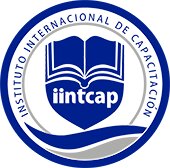Best Structured Finance Lawyers in Santiago de los Caballeros
Share your needs with us, get contacted by law firms.
Free. Takes 2 min.
List of the best lawyers in Santiago de los Caballeros, Dominican Republic
About Structured Finance Law in Santiago de los Caballeros, Dominican Republic
Structured finance is a sophisticated area of financial law that involves complex transactions, including securitizations, syndicated loans, asset-backed securities, and other financial instruments. In Santiago de los Caballeros, Dominican Republic, structured finance is often utilized by large corporations, banks, and investors seeking to raise capital or mitigate financial risks. The regulatory environment in the Dominican Republic is evolving, with local authorities and financial institutions adapting international standards to suit the Dominican context. While structured finance transactions have traditionally been concentrated in the capital, Santo Domingo, Santiago de los Caballeros’ growing economy makes it an increasingly important center for such activities.
Why You May Need a Lawyer
Structured finance transactions are highly technical and involve multiple legal risks. If you are operating a business, acting as an investor, or representing a financial institution in Santiago de los Caballeros, you may need a legal specialist for the following reasons:
- Drafting and reviewing complex agreements related to securitizations, asset-backed loans, or other structured products.
- Ensuring compliance with local banking, corporate, and securities regulations.
- Advising on risk allocation between parties, such as originators, investors, and servicers.
- Guidance on cross-border transactions and foreign exchange controls.
- Dispute resolution in cases of contractual breaches or defaults.
- Tax implications and optimization relating to structured finance deals.
- Due diligence and asset verification for transactions backed by mortgages, receivables, or other assets.
Local Laws Overview
Structured finance activities in Santiago de los Caballeros are subject to several legal frameworks at both the national and local levels. The most relevant regulations include:
- Law No. 183-02 - the Monetary and Financial Law, establishes the general regulatory framework for financial institutions and financial markets.
- Law No. 479-08 on Commercial Corporations governs company formation, governance, and merger processes used within structured transactions.
- Superintendency of Banks (Superintendencia de Bancos) issues regulations for banks and non-bank financial institutions, often impacting structured finance products.
- Securities Superintendency (Superintendencia del Mercado de Valores) oversees securities offerings, including asset-backed securities and securitizations, under the Securities Market Law No. 19-00.
- Foreign exchange rules and anti-money laundering laws must be strictly observed, especially in transactions involving offshore entities or foreign investors.
While there is increasing openness to innovative instruments, documentation must often be tailored to Dominican law, and some structures common in other markets may require adaptation due to local legal or regulatory constraints.
Frequently Asked Questions
What types of assets can be securitized in the Dominican Republic?
Common asset classes eligible for securitization include mortgages, auto loans, credit card receivables, and future cash flows from contracts. Each type of asset must comply with local legal requirements on transferability and registration.
Do I need government approval for a structured finance transaction?
Certain structured finance products, especially those involving public offerings or securities, require registration and approval from the Securities Superintendency. Transactions involving regulated financial institutions may also need approval from the Superintendency of Banks.
How are structured finance deals typically structured in Santiago de los Caballeros?
Structural options include trust structures (fideicomiso), special purpose vehicles (SPVs), and collateral arrangements. Dominican law favors the usage of trusts for asset segregation and investor protection.
Can foreign entities participate in structured finance in Santiago de los Caballeros?
Yes, but they may be subject to foreign investment regulations, currency controls, and additional due diligence. Legal guidance is recommended to ensure proper compliance.
What taxes apply to structured finance transactions?
Transactions may be subject to value-added tax (ITBIS), capital gains tax, and withholding taxes, depending on the structure chosen and the parties involved. Consultation with a tax specialist is recommended.
What are the main risks in structured finance transactions?
Common risks include credit risk, legal enforceability, regulatory changes, and issues related to the perfection of security interests. Due diligence and careful drafting are essential to mitigate these risks.
How is receivable assignment handled under Dominican law?
Assignment of receivables generally requires notification to the debtor and, in some cases, registration. The requirements depend on the type of receivable and whether consumer protection laws apply.
Is it possible to execute cross-border structured finance deals?
Yes, but careful planning is needed to navigate foreign exchange restrictions, double taxation agreements, and cross-border regulatory compliance.
What recourse do investors have in case of default?
Remedies are typically governed by the contract, but may include enforcement of security interests, foreclosure of pledged assets, and court or arbitration proceedings.
Are there any restrictions on repatriating profits from structured finance deals?
While foreign investors may generally repatriate profits, there are reporting requirements and possible restrictions under foreign currency and anti-money laundering regulations.
Additional Resources
If you need further information or support, consider reaching out to the following Dominican Republic resources:
- Superintendency of Banks (Superintendencia de Bancos)
- Securities Superintendency (Superintendencia del Mercado de Valores)
- Chamber of Commerce and Production of Santiago
- Association of Dominican Banks (ABA)
- Dominican Bar Association (Colegio de Abogados de la República Dominicana)
- Tax Administration (Dirección General de Impuestos Internos, DGII)
Next Steps
If you are considering or engaged in a structured finance transaction in Santiago de los Caballeros, it is essential to seek advice from a qualified legal professional experienced in complex financial transactions and Dominican law. Begin by:
- Identifying your specific needs and the type of transaction involved.
- Gathering relevant documentation, such as contracts, corporate bylaws, and financial statements.
- Contacting a reputable law firm or legal expert in structured finance within the region.
- Discussing potential tax implications with an accountant familiar with Dominican regulations.
- Ensuring compliance with all regulatory and reporting obligations before proceeding.
Consulting a specialized lawyer will help you navigate complexities, reduce risks, and ensure that your interests are protected throughout the course of your structured finance activities in Santiago de los Caballeros, Dominican Republic.
Lawzana helps you find the best lawyers and law firms in Santiago de los Caballeros through a curated and pre-screened list of qualified legal professionals. Our platform offers rankings and detailed profiles of attorneys and law firms, allowing you to compare based on practice areas, including Structured Finance, experience, and client feedback.
Each profile includes a description of the firm's areas of practice, client reviews, team members and partners, year of establishment, spoken languages, office locations, contact information, social media presence, and any published articles or resources. Most firms on our platform speak English and are experienced in both local and international legal matters.
Get a quote from top-rated law firms in Santiago de los Caballeros, Dominican Republic — quickly, securely, and without unnecessary hassle.
Disclaimer:
The information provided on this page is for general informational purposes only and does not constitute legal advice. While we strive to ensure the accuracy and relevance of the content, legal information may change over time, and interpretations of the law can vary. You should always consult with a qualified legal professional for advice specific to your situation.
We disclaim all liability for actions taken or not taken based on the content of this page. If you believe any information is incorrect or outdated, please contact us, and we will review and update it where appropriate.













